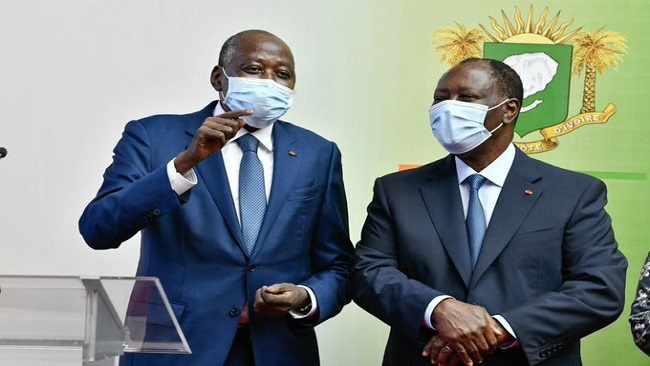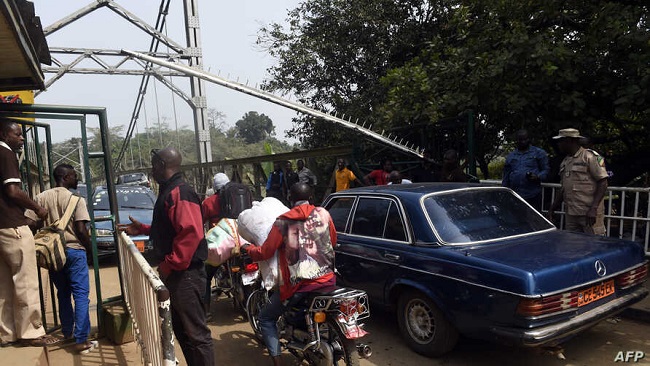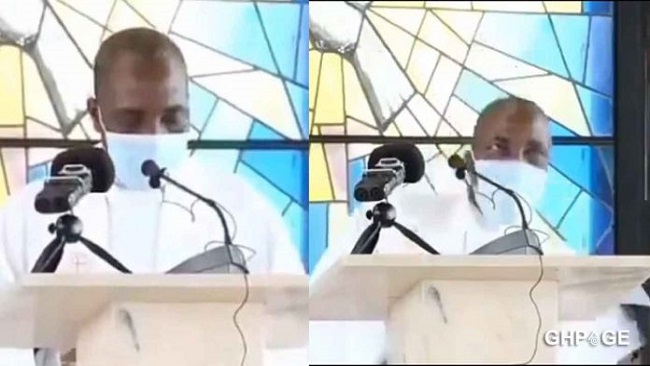2, September 2020
Southern Cameroons Crisis: Soldiers are missing the point! 0
This unfortunate and unpalatable drama in Cameroon has been going on for too long and the government’s response to acts of violence by restoration forces is predictable. Once a uniformed officer gets killed by armed fighters, Cameroonian soldiers go on a rampage, killing innocent civilians, burning homes and damaging businesses in the area. This is the government’s strategy to counter attacks by Southern Cameroonian fighters whose tactics and strategies have morphed over the years.
Southern Cameroonian fighters started with hunting rifles, sometimes using machetes to decapitate soldiers and civilians they suspect of betraying the course. Today, they have acquired assault rifles and bombs that have made them real weapons of mass destruction for the country’s military. The country’s army soldiers dread encountering these fighters, especially in the dense equatorial forest in the country’s Southwest region where professionally trained Southern Cameroon fighters have resorted to hit and run tactics.
The last few months have shown the world the atrocities the fighters and soldiers are capable of committing. In August, Southern Cameroonian fighters literally slaughtered Ms. Comfort Tumassang, a government a spy, in broad daylight in Muyuka, a small town some five miles from the Southwest regional headquarters of Buea. Her killing and that of the young man she worked with sent three of her friends packing from Muyuka, as Southern Cameroonian fighters had made them targets and they were willing to make good on their promise.
As a response to the her killing, the government dispatched troops to Muyuka on the same day and a few minutes after their arrival in the town, they arrested three young men whom they have been brandishing on national TV as the criminals who committed murder in broad day light. But the population knows that the government and its troops are in the business of lying and that anybody who takes their word seriously will end up with the wrong information. The government is noted for lying through its teeth and its word should never be taken seriously.
More than three weeks after arresting those young men, the same troops are still looking for Ms. Tumassang’s killers. They have been burning homes in Muyuka, Ikata and Muyenge, sometimes robbing the population and ruining small businesses. Today, Ikata and Muyuka have been reduced to rubble and the population has simply moved to other places considered as safe havens.
Yesterday, it was the turn of Bamenda. Some Southern Cameroonian fighters ambushed a police car, killing two police officers at the city’s commercial avenue. This sent the country’s military into a rampage. One civilian was killed, and many businesses were destroyed. A pattern that has become normal and predictable by the population.
The government’s demonic and ineffective strategy to roll back the fighters is only turning out to be counterproductive. The strategy has been in effect since 2017 and the government cannot display any meaningful positive results. On the contrary, the international community has been criticizing its heavy-handed approach to solving the Southern Cameroons crisis which has resulted in the deaths of more than 5,000 Cameroonians. As of today, more than two hundred Southern Cameroonian villages and towns have been destroyed by government troops, creating hordes of refugees, with more than half a million Southern Cameroonians escaping to Nigeria and a similar number moving to East Cameroon where they are living rough and constantly being referred to as Internally Displaced Persons.
For many, the hardship is unbearable and the hope of returning to their villages and towns is gradually fading away, especially as the government and the fighters are nowhere close to agreeing on even the slightest thing – talking. Both factions seem to be frozen in their positions. The fighters are determined to achieve their independence while the government, constituted of old and sick people, is still stuck in its old ways. It still holds that the tricks of the past will work again, but it is oblivious of the fact that times have changed, and the country’s English-speaking minority has significant support that may result in its toppling.
More than three million Southern Cameroonians live abroad, especially in the United States, Canada, the United Kingdom, Germany, Nigeria and Australia and most of them are in support of an independent Southern Cameroons and are making significant financial contributions to the purchase and shipping of sophisticated weapons to the fighters, some of whom are mercenaries from neighboring Nigeria.
Though the leaders of the insurgency are currently in jail in Yaounde, the fighting has not slowed down. Southern Cameroonian fighters have simply changed their modus operandi, and this is causing the arrogant Yaounde government to lose sleep and huge amounts of money. Resources that could have been used for development purposes are today being diverted to persecute a war that could have been avoided if the Yaounde government had opted to talk and negotiate.
Its arrogance and love of brutality and violence which are its tools of choice of conflict resolution and management have today left the country in a difficult and complicated quandary. The country’s economy has taken a destabilizing blow to the liver with most state-owned corporations in the two English-speaking regions going under. PAMOL and CDC – the country’s second highest employer – have gone under and experts have already indicated that if those two corporations will ever be operational again, then the government must pour millions of dollars into their resurrection. Workers of those two corporations are today unemployed and the stress of losing a job and their inability to finance their children’s education are gradually sending many of them to an early grave.
Many in the international community consider the government’s response to the calls for Southern Cameroons independence an act of stupidity. Many analysts argue that the government did not know that the times had changed and that new communication technologies had made it possible for Southern Cameroonians living out of the country to raise money and coordinate their actions with relative ease. Besides, with America, Canada and the United Kingdom standing firmly behind Southern Cameroonians, it will be impossible for the Yaounde government to win peace in the battlefield.
If the military continues to kill civilians and destroy businesses in the two English-speaking regions of the country each time a soldier is killed by Southern Cameroonian fighters, it is clear that it has missed the point. The soldiers have not understood that each time they mount an incursion against the population, they are simply pushing the young men and women whose parents and relatives have been killed into the waiting arms of the fighters who are always ready to welcome them.
If the government’s objective is to bring about peace in its two English-speaking regions, then it must know that it has missed its target. After four years since the conflict erupted, it must know that its strategy is totally wrong and counterproductive. More Cameroonians have been sent to an early grave and peace is still illusory. The country is in the grip of a civil war that will not be ending anytime soon. After four long years, the government should know that the battlefield will never deliver the results it wants. It must start thinking of new ways to deal with this ugly situation that has given the country a bad name and left the country’s economy on its knees. Talking will surely help. It is a pill that will be more effective than any “silver bullet” the government may buy.
Though many lives have been lost, thousands displaced, and many businesses ruined, it is still possible to engineer a new political dispensation in Cameroon. War has never solved any problem. It is always wise to talk. Talking with Southern Cameroonians is not difficult. Southern Cameroonian leaders are in jail and it will be a lot easier to bring them together for a peaceful resolution of the crisis that has left the government with a bloodshot eye. This will, however, require honesty, determination and sincerity on the part of a government that has thriven on tricks and dishonesty for more than three decades. The ball is in its court. It is up to it to choose the right conflict resolution tool. Violence, trickery and brutality will surely not deliver the right results. After four years, it is clear that a new approach is necessary. The world is watching!
By Soter Tarh Agbaw-Ebai in Dusseldorf, Germany






















2, September 2020
French military in Mali says it killed civilian ‘by accident’ 0
French anti-jihadist troops in Mali killed a civilian Tuesday and injured two others after a bus refused to slow down in a volatile area despite their orders, the French army command said.
The incident occurred about 50 kilometres (31 miles) from the city of Gao in Mali’s troubled north.
The French soldiers fired warning shots in the ground but two bullets bounced off and hit the windscreen, wounding three people, including one fatally, the French army command said.
“The seriously wounded person was evacuated by helicopter to the hospital of the (French) Barkhane force in Gao, but died of his injuries,” it said.
“All steps have been taken to ascertain the exact sequence of events,” it said, expressing its “sincere condolences to the family of the deceased.”
Mali is now under the control of a junta which seized power in a putsch two weeks ago.
Swathes of its territory are outside of the control of central authorities and years of fighting have failed to halt an Islamist insurgency that has claimed thousands of lives since emerging in 2012.
France has deployed over 5,000 troops serving in its Barkhane anti-jihadist force in West Africa.
A key part of French strategy to combat terrorism in the turbulent region lies with the so-called G5 Sahel force — a scheme to create a 5,000-man joint force gathering Burkina Faso, Chad, Mauritania, Mali and Niger.
But the force lacks equipment, training and funds.
Source: AFP